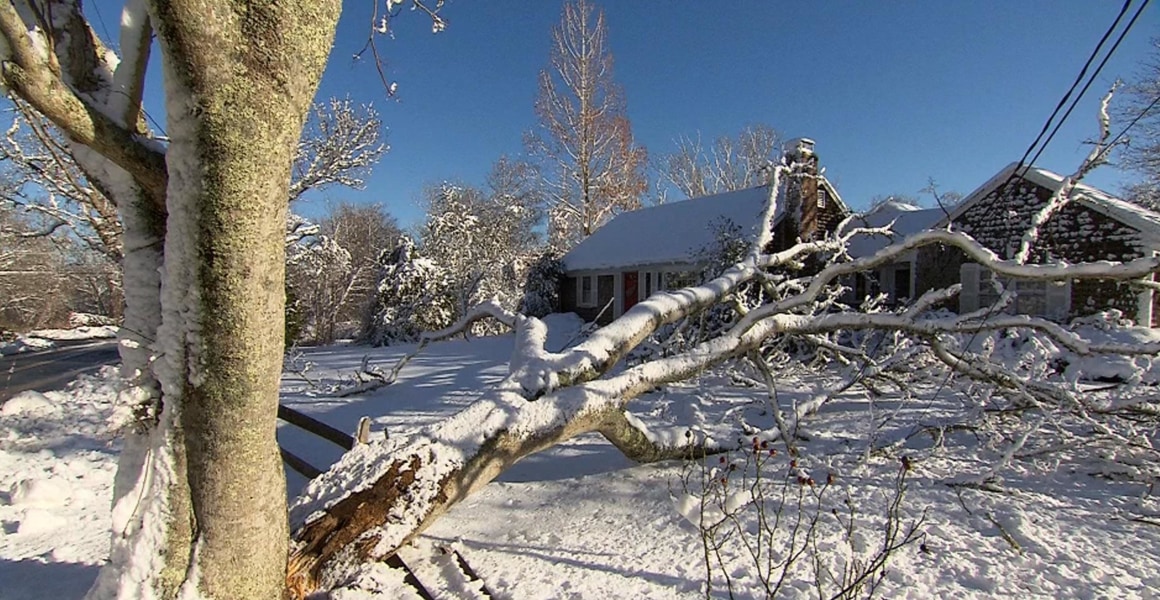By Daniel Arkin
The wild weather is just the latest chapter in a seemingly endless winter that has nearly ground to a halt a wide swath of the country and severely strained emergency services as well as road, water and power systems. Workers were still scrambling to fix collapsed roofs, burst pipes and flooded streets.
As the storm wreaked havoc overnight, coastal areas in Maine and south of Boston appeared to be hit the hardest.
Dispatchers with the Sandwich police and fire departments told The Boston Globe the town had a few minor car accidents and brief power outages, but there were not reports of major damage. Sergeant Walter Warren of the Yarmouth Police Department told the newspaper the storm left the biggest dent in the town’s electricity infrastructure. “The only damage we had was a lot of transformers and downed lines and downed trees and that’s about it,” he said told the newspaper Sunday morning.
Heavy winds of upwards of 50 mph were reported Saturday night on Cape Cod, where utility company NStar said roughly 2,800 customers were without electricity Sunday evening, according to NBC affiliate WHDH in Boston.
The uility expected that most power will be back late Sunday, but restoration efforts will run into Monday, according to the station. "The effects of this storm compared to those of this winter's last few storms have caused much more damage to our electrical system," Craig Hallstrom, President of NStar Electric, told the station.
Crews from Connecticut were dispatched to Massachusetts to help fix the power outages after more than 13,000 customers greeted the day in the dark. The snow reached 17 inches in Hancock, Maine, and in Eastport, the easternmost city in the country. The Department of Transportation said it sent out 375 trucks statewide at the peak of the storm Saturday evening. Transportation officials in Rhode Island cautioned drivers to brace for treacheous travel conditions through the Monday morning rush, blaming depleted road salt supplies that forced them to use only a limited amount ahead of the storm. The Rhode Island Department of Transportation said it was using sand for traction on roadways that were left slickened by snow and ice, but that roads were likely to freeze again Sunday night — and black ice was likely.
Rhode Island was slammed by between 3 and 8 inches of snow, the National Weather Service said.
The weekend snowstorm follows an earlier storm that covered the East Coast with snow and ice, causing at least 25 deaths and leaving hundreds of thousands without power.
And it comes after a powerful and rare storm walloped the Southeast, snarling traffic and cutting off power across wide swaths of Georgia and South Carolina. Roughly 22,000 utility customers still didn't have power Sunday evening in South Carolina, according to The Weather Channel. At the height of the storm's fury Wednesday, some 350,000 customers lost power across the state. Thousands of customers in Georgia were also still dealing with power outages on Sunday as well, according to The Weather Channel.
The Associated Press contributed to this report.

No comments:
Post a Comment